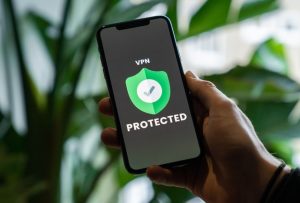When it comes to online privacy, many of us rely on incognito mode to ensure our web browsing activities remain hidden. But is Incognito Mode really private? In this article, we will take a look at what Incognito Mode is, how it works, and whether or not it is actually a safe and secure way to browse the web.
Incognito mode is a feature offered by most modern web browsers that allows users to browse the internet without leaving any trace of their activity. It stops your browser from recording various aspects of your browsing activity such as cookies and browsing history. Consumer Reports says that incognito mode can be useful if you search for a product but don’t want other users on the same device to see what you’ve been looking at.
When using incognito mode, certain data about your browsing history may still be visible depending on the type of browser you are using. Generally speaking though, incognito mode can help keep prying eyes from viewing your search history but it doesn’t completely protect you from internet tracking since even in this mode websites can still track your IP address and other information about you.
Basically, Incognito mode hides your browsing activity from other users on your device but does not hide all information from websites which may still be able to track certain data about you such as IP address or location data even when in this private browsing setting. Therefore while incognito mode can provide some level of privacy protection for users who want more control over their online activities it’s important to remember that it’s not completely foolproof when it comes to protecting user privacy online.
What is Incognito Mode?
Incognito Mode is a private browsing mode that is available on most modern web browsers. It works by removing local data from your web browsing sessions, meaning that no browsing activity is recorded in your local search history or stored in cookies. Additionally, Incognito Mode will also prevent your browser from storing any information you enter into forms and permissions you give websites. This means that any information stored in cookies will not be available when you visit the same website again in Incognito Mode. To exit Incognito mode, all of the tabs must be closed.
When using Incognito Mode, it’s important to remember that while it prevents your browser from recording certain aspects of your activity such as cookies and browsing history, it does not make you completely anonymous online. Your internet service provider (ISP) can still track what websites you visit and other third-party services may still collect data about you even when using incognito mode. Therefore, if complete privacy is desired then additional measures should be taken such as using a virtual private network (VPN).
Incognito mode provides an extra layer of privacy for those who want to browse without leaving a trace on their device or having their activities tracked by third-party services. It’s useful for people who want to keep their searches private or don’t want certain sites to store data about them such as login details or preferences for future visits. However, it’s important to remember that while this feature offers some protection against tracking and logging activities on the device itself, it does not provide complete anonymity online so additional measures should be taken if total privacy is desired.
How Does Incognito Mode Work?
Incognito mode is a private window in your web browser that prevents your browser from storing any information about the websites you visit. This includes the website URL, the content of any forms you fill out, and any files you download. Additionally, Incognito Mode will also prevent your browser from storing any cookies created by the websites you visit. When using Incognito Mode, none of your browsing history, cookies and site data or information entered in forms are saved on your device. This means that if you visit a website in Incognito Mode, it won’t be able to track your activities or store any information about you. Furthermore, all files downloaded during an Incognito session will not be stored in your browser history and will be deleted when the window is closed.
However, while using Incognito mode does provide some privacy benefits such as preventing certain forms of internet tracking and wiping local traces of where one has been online; it doesn’t guarantee complete privacy or prevent web tracking entirely. That’s because private browsing only wipes local traces from one’s device but doesn’t stop third-party sites from collecting data about their activities online through other means such as IP addresses or other identifiers like user accounts on social media platforms. Therefore it is important to remember that while using incognito mode can help protect one’s privacy to some extent; it isn’t foolproof and should not be relied upon for complete anonymity online.
Is Incognito Mode Really Private?
Incognito Mode is a private window in your web browser that allows you to browse the internet without leaving any trace of your activity on your computer. While Incognito Mode can keep prying eyes from viewing your search history, it does not provide complete privacy and anonymity. Websites are still able to track and monitor your activities, as well as any files that you download. Additionally, Incognito Mode does not protect you from being tracked by your Internet Service Provider (ISP). Your ISP can still track the websites that you visit and the content of any files that you download, even when using Incognito Mode.
Furthermore, while Incognito mode prevents certain information from being stored on your device such as browsing history, cookies and site data or information entered in forms; it does not guarantee private browsing or prevent web tracking. Therefore, if complete privacy is what you are looking for then using a Virtual Private Network (VPN) may be a better option for protecting yourself online. VPNs encrypt all of the data sent between devices so that ISPs cannot see what websites are being visited or what content is being downloaded.
In conclusion, while Incognito mode provides some level of privacy by preventing certain information from being stored on devices; it does not provide complete privacy or anonymity online due to its inability to prevent websites from tracking activities or ISPs from monitoring website visits and file downloads. If total privacy is desired then using a VPN may be more suitable for protecting yourself online than relying solely on incognito mode alone.
Conclusion
In conclusion, Incognito Mode is a useful tool for preventing your browser from storing information about the websites that you visit. It can help keep your browsing private from other people who use your device, as it does not save any data or browsing history associated with a particular session. However, it does not provide complete privacy and anonymity as websites can still track you while you’re browsing and your internet service provider (ISP) can still monitor the websites that you visit. If you are looking for complete privacy and anonymity when browsing the web, it is best to use a Virtual Private Network (VPN). A VPN will encrypt your internet traffic and hide your IP address, which will prevent ISPs from tracking your activities and any websites that you visit.




Be First to Comment